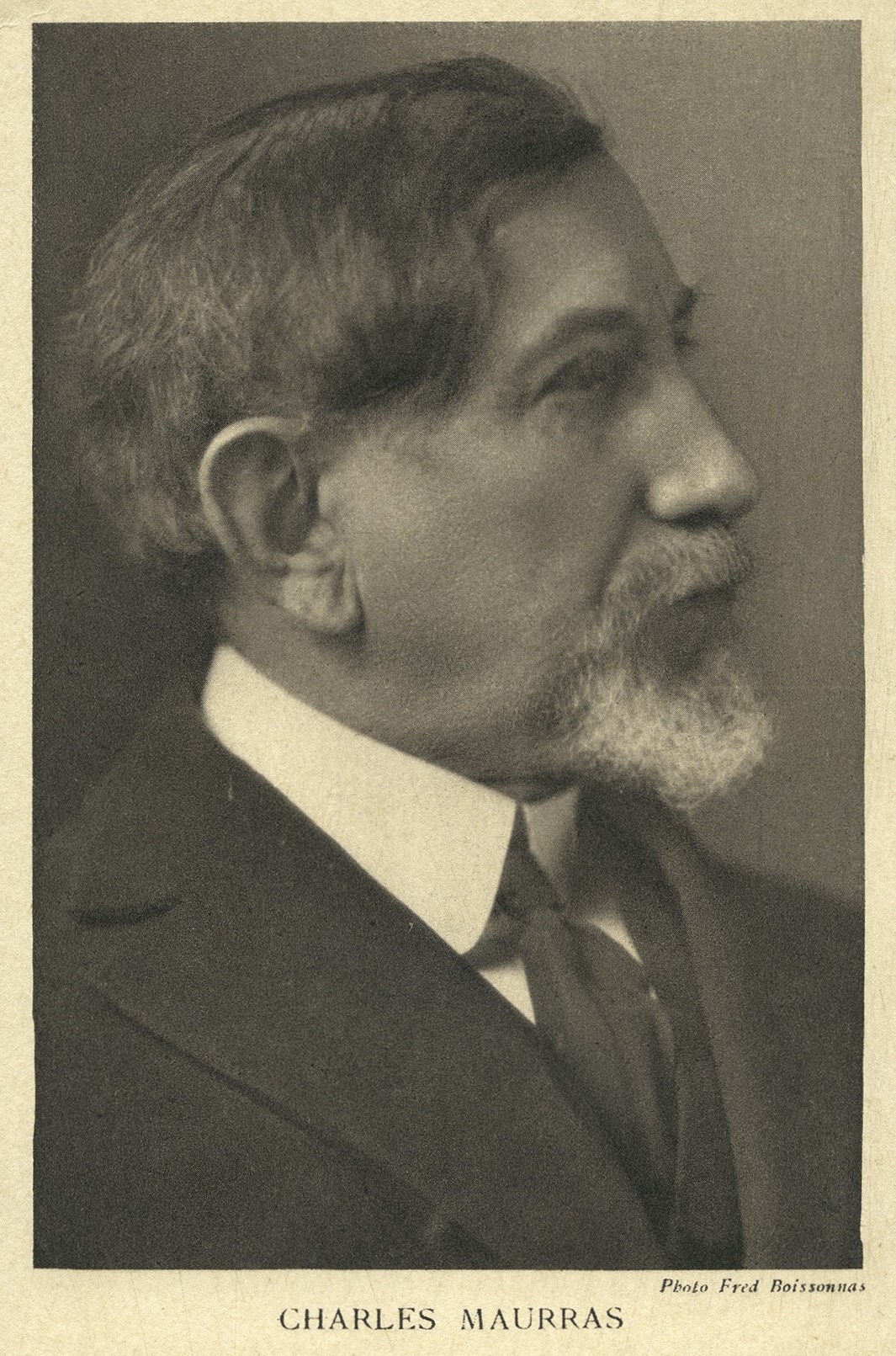
Maurrassisme
Maurrassisme is a political doctrine originated by Charles Maurras (1868–1952), most closely associated with the Action française movement. Maurassisme advocates absolute integral nationalism, monarchism, corporatism, national syndicalism, and opposition to democracy, liberalism, capitalism, and communism.[1]
Place in the history of political ideas[edit]
A new political synthesis[edit]
In terms of political institutions Maurras had been a legitimist in his youth, then a federalist republican, but rediscovered royalism (although as a supporter of the Orléanists) in 1896 through a political argument: kings had created France, and France had been degenerating since 1789. As a partisan of duc d'Orléans and his descendants (the Duke of Guise, then the Count of Paris), he dreamed of converting the Action française, newly created by nationalist republicans, to the royalist ideal, and of gathering to him the remainder of traditional French royalty, exemplified by the Marquis of la Tour du Pin or General de Charette.
The synthesis between counter-revolutionary ideas and nationalism (but also positivism), triggered by the moral shock of the war of 1870, which had turned some traditionalist forces towards the national idea and largely operated by the Dreyfus affair from 1898 onwards, was to find its apotheosis in Maurrassisme. While there remained some non-Maurrassiste political nationalist movements, such as the many Jacobin expressions of nationalism and the universalist nationalism along the lines of Péguy, counter-revolutionary politics was completely converted to Maurrassisme by 1911 after the consolidation of traditional royalist groups.
Maurrassisisme was to give a second wind to counter-revolutionary ideas, which had been in decline since 1893 which saw Catholics drawn to the Republic. It was to promulgate these ideas beyond their traditionally counter-revolutionary regions, Catholic society and the aristocracy.
Personally an agnostic until the final years of his life (at which time he converted to Catholicism), Maurras appreciated the social and historical role of the Catholic religion in French society, particularly its role as a federating force. His utilitarian vision of the Catholic Church as an institution serving the interest of national cohesion fostered a convergence between devout Catholics and those more distanced from the Church.
A major influence on the first half of the 20th century[edit]
The Maurrassist synthesis would develop into a school of thought in France, and indeed extend beyond French borders. Within France, Maurrassisme became a major influence in intellectual and student circles (in law and medical departments, etc.) in the 1910s and 1920s, reaching a peak in 1926 before the pope's condemnation. By way of example, the Maurrassist current had its attraction to the most diverse personalities, "from Bernanos to Jacques Lacan, from T.S. Eliot to Georges Dumézil, from Jacques Maritain to Jacques Laurent, from Thierry Maulnier to Gustave Thibon, up to de Gaulle".[4]
Maurrassisme was a particular source of inspiration for the Révolution nationale of the Vichy regime of 1940–1941, the regime of Antonio Salazar in Portugal and of Francisco Franco in Spain.